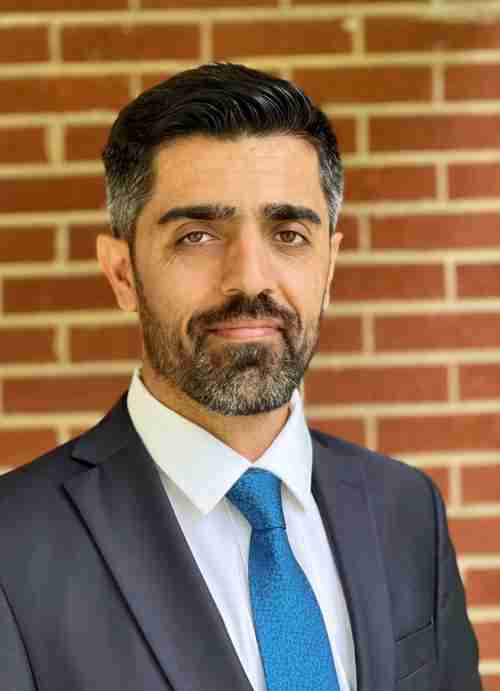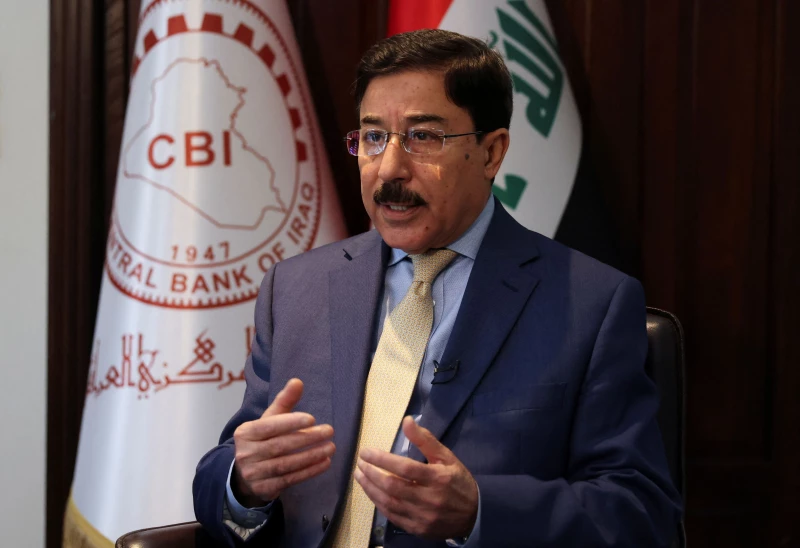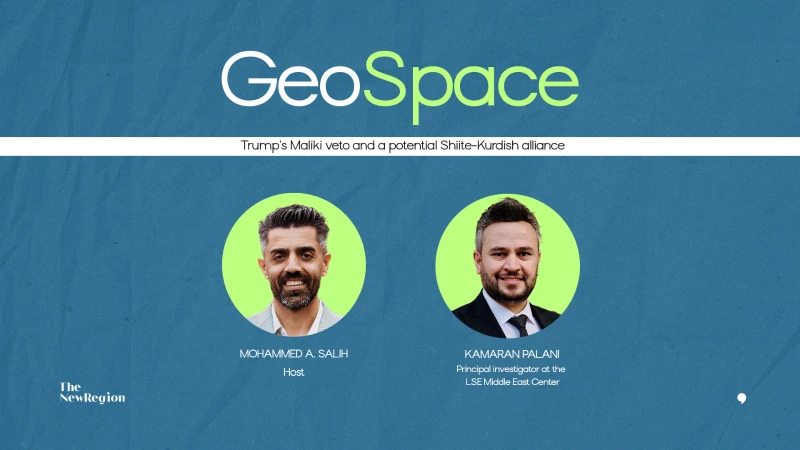On the latest episode of The New Region's GeoSpace podcast, Mohammed A. Salih hosted leading expert on Iraqi affairs Renad Mansour, a senior research fellow with the Middle East and North Africa
Program at Chatham House in London. The pair navigated US-Iraqi relations amid increasing regional tensions and Iraq's role therein.
Mansour noted that he had learned during a recent visit to Washington that Iraq had dropped down noticeably, in terms of priority, from the administration of US President Donald Trump's agenda, owing to other major conflicts unfolding in the Middle East region, namely Israel's campaign in the Gaza Strip, as well as Israel's attacks on other regional nations. "I would say the big takeaway from my trip was that Iraq isn't really on the radar at the moment," said the Iraq expert.
Speaking to a potential withdrawal of US troops in Iraq, Mansour said that "a lot of people who are less familiar might conflate or equate Afghanistan troop withdrawal with Iraq troop withdrawal, where the Biden administration ended the war in Afghanistan and very quickly the Taliban took over and it's seen as, you know, it is this massive failure of retreat."
"Iraq is a completely different context here," the researcher noted. "There isn't a Taliban in that way waiting to kind of fill this vacuum because there isn't a vacuum."
"The American troops are very minimal. They're there for these peripheral ISIS operations, which, as I say, have become very, very minimal in the last few years."
Mansour noted that the major threat putting Iraq on the US' radar at the moment is the passage of a Popular Mobilization Forces (PMF) bill that would see the PMF bypass the Iraqi defense ministry, report directly to the Iraqi prime minister, and grant the PMF's commander a ministerial post.
"The Americans have made it very clear that they are unhappy with the passing of this law. And it's, you know, to be honest, very unlikely that this law will pass until the next government. So it will take some time," according to the Chatham House researcher.
Iraq's Iran-aligned PMF forces have made several headlines in recent times, in relation with the US, with the latest being the designation of four brigades under the PMF as Foreign Terrorist Organizations (FTO) by the US State Department.
"These groups have been proven to be incredibly dynamic. And the reality is, because this is not a legal problem that we're looking at, the way that the Iraqi state and society functions is one that allows for adaptability. So, you know, even if a group is sanctioned economically, it will be able to find ways and mechanisms to try and overcome that," according to Mansour


 Facebook
Facebook
 LinkedIn
LinkedIn
 Telegram
Telegram
 X
X


